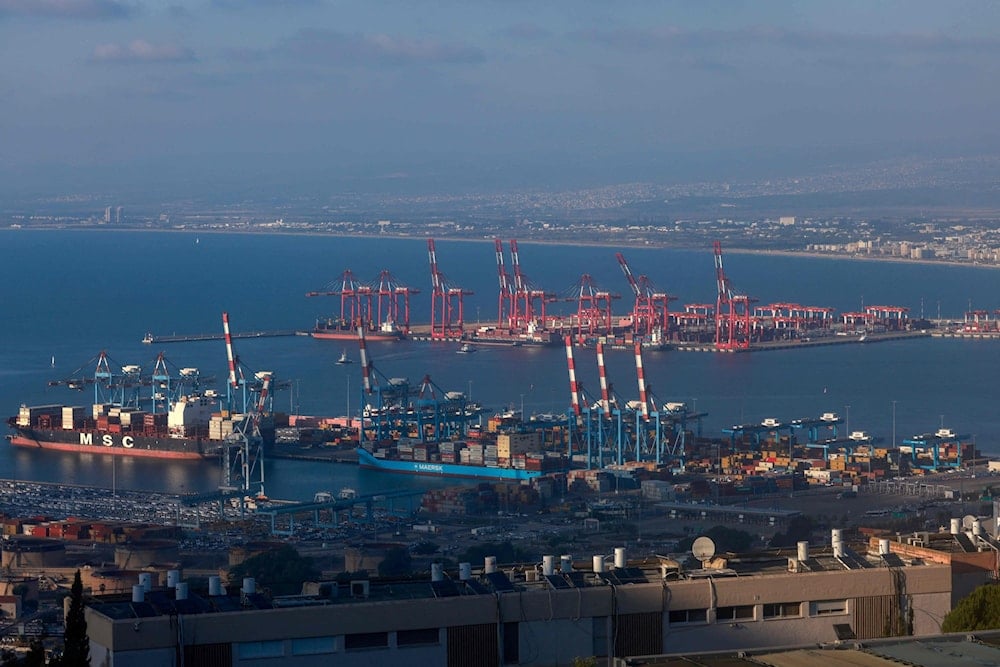'Israel' faces crippling naval blockade from Iran, Hezbollah: Reports
40% of general cargo ships are now refusing to sail towards "Israel" due to the high risks and costs associated with the blockade.
-

A general view shows the Israeli port of Haifa, occupied Palestine, Aug. 13, 2024. (AFP Photo)
"Israel" is reportedly suffering from a de facto naval blockade imposed by Iran and Hezbollah, according to a recent report from the Israeli news outlet Walla!.
This blockade, which has come into effect "before any missile strikes", has already caused severe operational paralysis in key Israeli ports, and experts warn that the situation could deteriorate further if the ongoing war escalates.
Blockade Without Missiles: A Strategic Move
The report details how this blockade has been strategically enforced by Iran and Hezbollah as a preemptive measure "in anticipation of the expected responses to the assassination of Hezbollah commander martyr Fuad Shukr in Beirut's southern suburbs and Hamas political bureau chief martyr Ismail Haniyeh in Tehran." Despite no missiles being fired, the blockade has effectively crippled "Israel's" maritime trade routes.
Since November, the port of Eilat has been non-operational due to ongoing Yemeni operations in the Red Sea. As a result, shipments destined for Eilat have been redirected to the ports of Haifa and Ashdod. However, with insurance costs skyrocketing and the increasing reluctance of shipowners to send vessels to these ports, the crisis is deepening.
Worsening Port Conditions
Rami Zafa, the head of "Israel's" maritime shipping office, warned that "40% of general cargo ships are now refusing to sail towards Israel" due to the high risks and costs associated with the blockade.
Additionally, "15% of oil tankers have ceased operations in Israel" and large container ships that previously serviced Israeli ports are now avoiding them. The only shipments arriving are those transported on smaller, more expensive vessels.
Read more: Yemen will stand by Lebanon in the face of Israeli threats: Al-Mashat
Zafa expressed grave concerns about the potential for a complete paralysis of Israeli ports if tensions continue to escalate. He highlighted the particular vulnerability of Haifa port due to its proximity to Lebanon, noting that the restrictions already in place could escalate into a "snowball effect, severely damaging its ability to support Israeli trade."
Strategic and Economic Impact
The burden of these disruptions has largely shifted to the Ashdod port. However, even there the situation is dire, with shipowners increasingly hesitant to send their vessels into what they see as a dangerous environment.
Zafa emphasized that "the ships entering Israel’s economic maritime zone cannot escape," as they would be prime targets for missile attacks from Hezbollah or Hamas.
In light of these conditions, Zafa has called on Transportation Minister Miri Regev and Finance Minister Bezalel Smotrich to take immediate action to bolster the ports' readiness for war. He also urged authorities to address the severe shortage of workers at the Ashdod port, where many employees have been called up for reserve duty.
Read more: Eilat port CEO signals mayday for financial support amid shipping halt

 3 Min Read
3 Min Read








